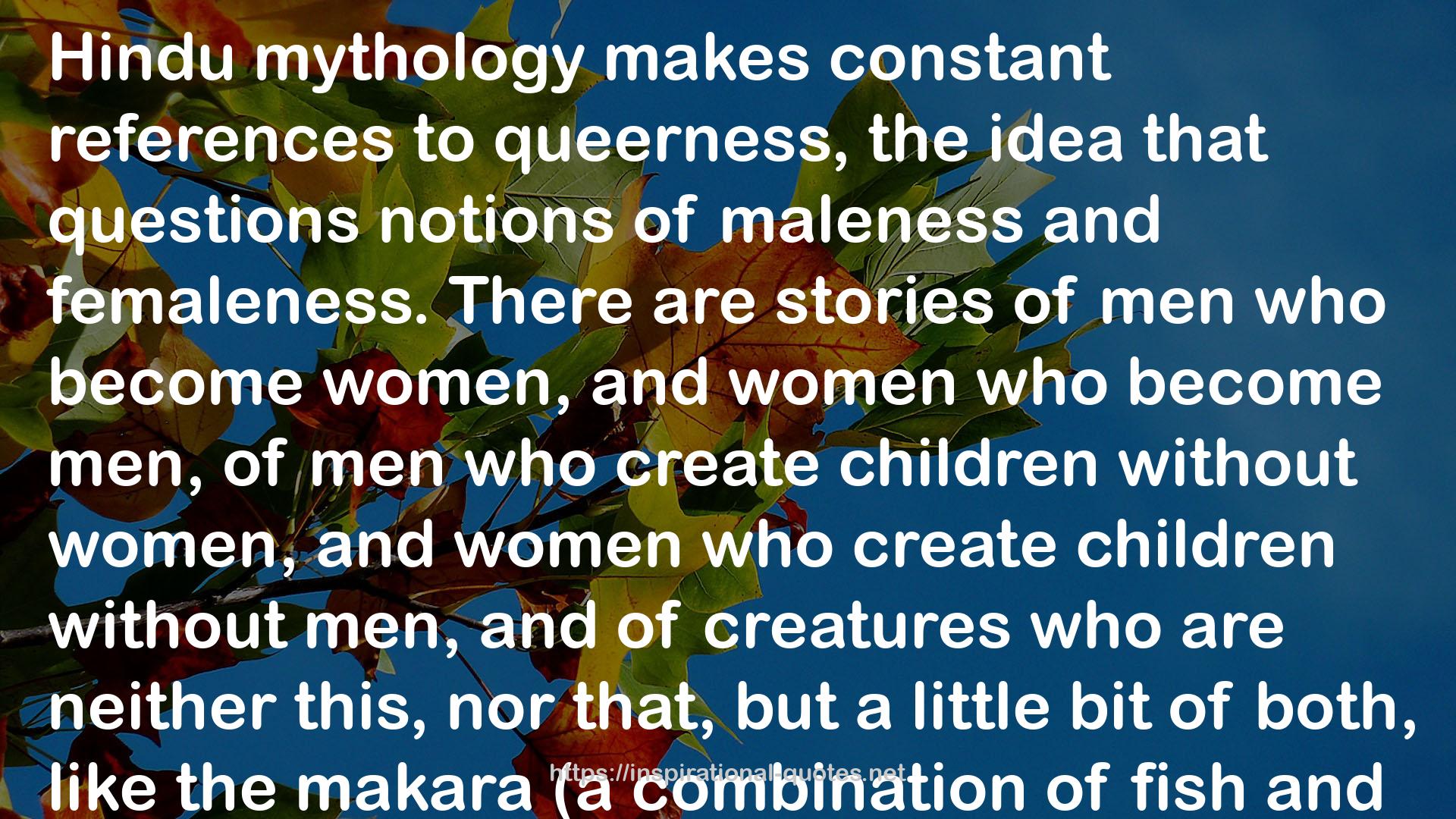" Hindu mythology makes constant references to queerness, the idea that questions notions of maleness and femaleness. There are stories of men who become women, and women who become men, of men who create children without women, and women who create children without men, and of creatures who are neither this, nor that, but a little bit of both, like the makara (a combination of fish and elephant) or the yali (a combination of lion and elephant). There are also many words in Sanskrit, Prakrit and Tamil such as kliba, napumsaka, mukhabhaga, sanda, panda, pandaka, pedi that suggest a long familiarity with queer thought and behaviour. It is common to either deny the existence of such fluidity in our stories, or simply locate them in the realm of the supernatural or point to law books that, besides endorsing patriarchy and casteism, also frown upon queer behaviour. Yet the stories are repeatedly told and shown. Gentle attempts, perhaps, of wise sages to open up stubborn finite minds and lead them towards infinity "
― Devdutt Pattanaik , Shikhandi and Other Stories They Don't Tell You
